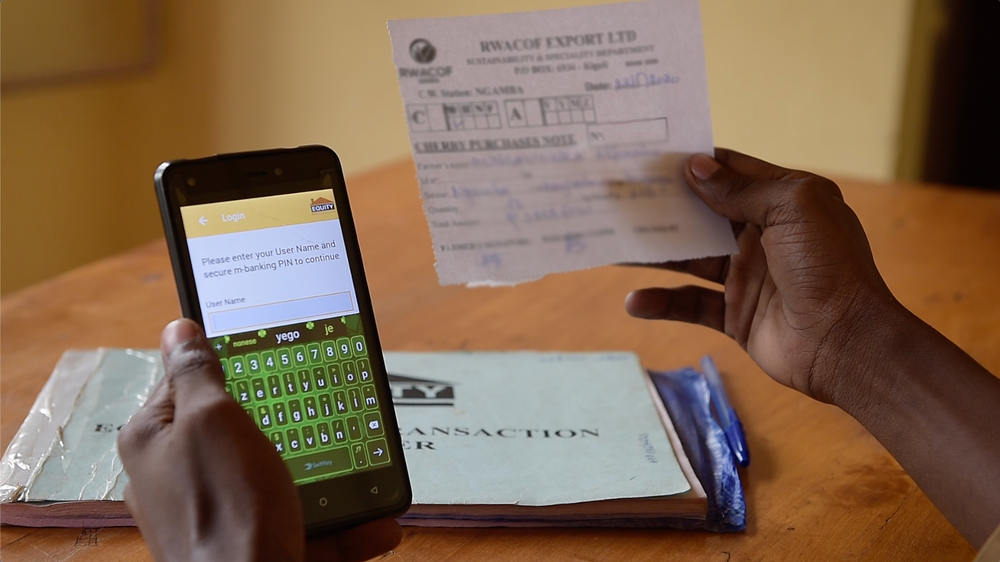From the Field, News
Monday, September 21, 2020
Expanding Financial Opportunities for Farmers in Rwanda
The current financial opportunities available to smallholder coffee farmers can make it difficult for them to financially support themselves and their families. At Sucafina, we have been seeking solutions where we can use our size and spending power to help expand farmers’ access to services.

Our sister company, RWACOF (Sucafina in Rwanda) is helping farmers increase their access to banking and financial opportunities. Traditionally, farmers receive their entire income from the coffee harvest in just 4 months (typically March to June). This presents challenges with cash flow and ‘bankability’ (access to credit and financial resources). “Growers are often financially excluded,” explains Max Veglio, RWACOF’s Managing Director. “Many don’t have official records of their incomes and financials, and that makes banks much more hesitant to lend to them.”
With farm and family expenses year-round and cash income from coffee coming in during only 1/3 of the year, most farmers need a loan to sustain them until the next harvest season. Without access to favorable credit terms, many farmers have to borrow at very high interest rates – often around 30%. If they can’t get a loan from a bank, they might need to pre-sell their crops – receiving cash now in return for a portion of their future harvest – but these terms are often even less favorable & farmers receive lower prices for their crops. One bad harvest combined with a high interest loan can make it impossible for farmers to scrape their way back to financial security.
“This is why we’ve transformed our washing stations into retail banks,” says Philotée Mukiza, Production Officer at RWACOF. “Staff at our washing stations can help farmers open a bank account, deposit & withdraw money. They can even use the cherry they’re delivering to repay loans, purchase inputs, and more.” The project has taken off. This first year, RWACOF’s washing stations have helped open more than 14,000 zero-fee accounts for farmers.
RWACOF is dedicated to continuing to support farmers as they continue to access new financial opportunities. “Next, we want to help facilitate access to loans in the offseason so that farmers can better pay for things like school fees, health insurance and clothing,” explains Darshit Shah, Head of Strategic Projects at RWACOF.
Greater access to credit often leads to higher quality coffee, as farmers have more money available to invest in inputs and farm maintenance. This can subsequently contribute to a positive feedback loop: with higher quality coffees, farmers can earn higher premiums and invest more money in themselves, their families and (of course) their farms.
In addition to providing more secure storage for their money, bank accounts are often the first step in bringing individuals into the formal financial realm. As farmers begin to develop banking histories, they’ll be able to negotiate lower interest rates, secure bigger loans and, in turn, use that money to increase their own incomes.
“Opening those accounts was a great first step, but it was only our first step. We are making progress towards making loans more accessible and plan to continue working alongside our farmer and banking partners for a more sustainable and equitable supply chain,” Max says.